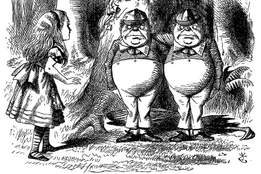What to KnowComparatives are adjectives used to say that something has more of a quality compared to something else. For example, the comparative of fluffy is fluffier (as in “her coat is fluffier than mine”) and the comparative of good is better (as in “I think this pretzel came out better than the others”). We use superlatives—such as fluffiest and best—when we want to say something has the highest degree of a quality compared to all others, as in “we adopted the fluffiest cat at the shelter” and “that was the best concert I’ve ever been to.”
Adjectives are words that describe something or someone. Happy, disgusting, small, and green are all adjectives. If we want to describe someone or something as having “more” or “the most” of a quality, we turn to comparatives and superlatives—forms of adjectives that allow us to do just that. Happier and more disgusting are examples of comparatives (“more”), and smallest and greenest are superlatives (“most”).
As you can see from these examples, many adjectives are modified with -er to become comparatives, and -est to become superlatives. Here are some more:
Comparatives: sooner, lovelier, sweeter,
Superlatives: biggest, unlikeliest, narrowest
However, you can also see that, as with disgusting, some adjectives do not work this way (especially if they have more than two syllables). Instead, they must be modified with more or most:
Comparatives: more careful, more rested, more practical
Superlatives: most intelligent, most bizarre, most beautiful
And some adjectives are not modified either way, such as good (which uses better and best for its comparative and superlative forms) and bad (which uses worse and worst).
Finally, there are some adjectives, such as fatal, left, and twentieth, that can’t be made into comparative or superlative forms. If they could, it would probably be the twentiethest thing we’ve ever heard.
(If you are interested in learning more about adjectives that can't easily be modified here's an article for you: Is It Wrong to Say 'Very Unique'?)




